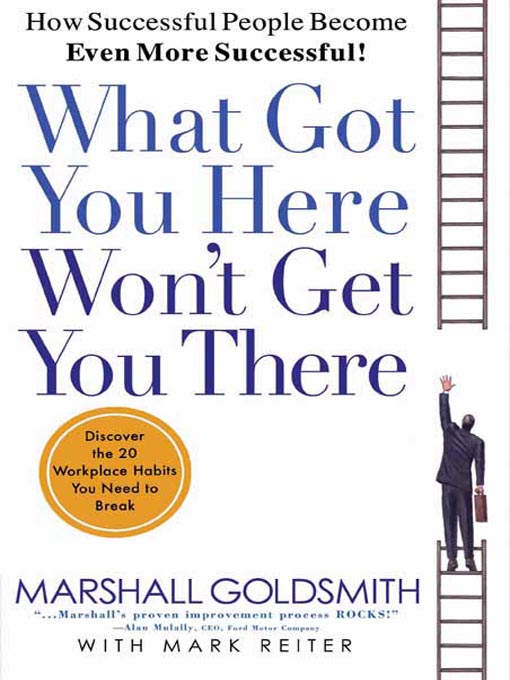Marshall Goldsmith–author, coach, and savvy marketer–spells out the twenty most common bad habits of executives in his book, What Got You Here Won’t Get You There. But you don’t need to be an executive to benefit from his advice. Everyone could stand to take responsibility for their actions, keep a positive and generous attitude, and work on (not celebrate) their faults–which is, essentially, the message of the book.
Here, in Goldsmith’s own words, are the twenty habits to avoid:
1. Winning too much: The need to win at all costs and in all situations–when it matters, when it doesn’t, and when it’s totally beside the point
2. Adding too much value: The overwhelming desire to add our two cents to every discussion
3. Passing judgment: The need to rate others and impose our standards on them
4. Making destructive comments: The needless sarcasms and cutting remarks that we think make us sound sharp and witty
5. Starting with “No,” “But,” or “However”: The overuse of these negative qualifiers which secretly say to everyone, “I’m right. You’re wrong.”
6. Telling the world how smart we are: The need to show people we’re smarter than they think we are
7. Speaking when angry: Using emotional volatility as a management tool
8. Negativity, or “Let me explain why that won’t work”: The need to share our negative thoughts even when we weren’t asked
9. Withholding information: The refusal to share information in order to maintain an advantage over others
10. Failing to give proper recognition: The inability to praise and reward
11. Claiming credit that we don’t deserve: The most annoying way to overestimate our contribution to any success
12. Making excuses: The need to reposition our annoying behavior as a permanent fixture so people excuse us for it
13. Clinging to the past: The need to deflect blame away from ourselves and onto events and people from our past; a subset of blaming everyone else
14. Playing favorites: Failing to see that we are treating someone unfairly
15. Refusing to express regret: The inability to take responsibility for our actions, admit when we’re wrong, or recognize how our actions affect others
16. Not listening: The most passive-aggressive form of disrespect for colleagues
17. Failing to express gratitude: The most basic form of bad manners
18. Punishing the messenger: The misguided need to attack the innocent who are usually trying to help us
19. Passing the buck: The need to blame everyone but ourselves
20. An excessive need to be “me”: Exalting our faults as virtues simply because they’re who we are
As a coach, I have seen executives exhibit these habits. It’s not that surprising really. Many of these habits develop because executives are accustomed to success and, therefore, reluctant to accept failure. These executives don’t always get to work with people who are as smart or talented as they are, which can be frustrating and spark anger.
While the habits Goldsmith addresses are understandable, they aren’t defensible. Leaders often come to this realization themselves. They reach a point in their careers where they want to be respected more than feared. They want to change the way they show up.
Goldsmith gives wonderful illustrations of these twenty habits and some suggestions on how to move away from them. So do yourself a favor and get this book, which is available in paperback, audio, and kindle.
Reviewed by Gary Cohen



